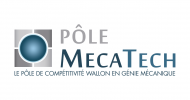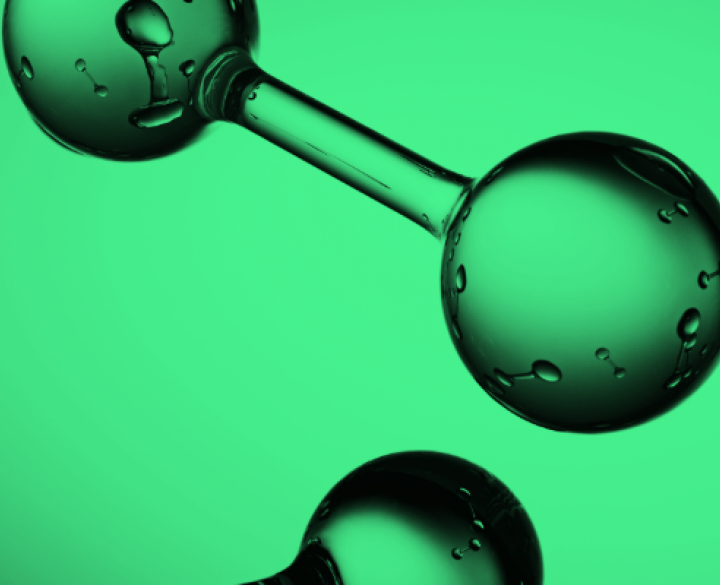The HECO2 structuring project - towards the decarbonisation of Walloon heavy industry - is a programme with several complementary strands, involving 20 partners from the Walloon ecosystem and supported by the GreenWin and MecaTech clusters.




Context
In the context of achieving the EU's goal of climate neutrality by 2050 and the proposed increase in the EU's greenhouse gas (GHG) emissions reduction target by 2030, the Walloon Government has introduced new initiatives as part of the National Recovery and Resilience Plan (PNRR) and the Walloon Recovery Plan.
The portfolio of projects supported by the HeCO2 consortium is part of Axis 1 of the NRRP and aims to develop new production processes and innovative technologies that meet the needs of Walloon industry. The project portfolio will help to meet Wallonia's commitments to move towards the European objective of carbon neutrality and to re-industrialise Wallonia by strengthening the competitiveness of industries and creating new activities.
Of the 5 priorities in the project portfolio, priority 2 presented here focuses more specifically on the generation of carbon-free hydrogen by electrolysis, the use of which in industrial processes is an alternative to fossil fuels.
Objectives
The project focuses on the production of hydrogen by electrolysis, with the aim of improving the performance of water electrolysis to produce green hydrogen under the best technical and economic conditions. It specifically aims to develop containerised solutions to facilitate testing and the flexible transition to widespread use of hydrogen. A pilot autonomous and connected containerised electrolyser with optimised cells will be set up. In addition, the electrical energy to be used in the electrolysis process will be of renewable origin, as the container will be installed on the MIRIS project site, a test microgrid consisting in particular of electricity generated by photovoltaic panels and a hybrid storage system.
The main deliverable will be an autonomous and connected containerised electrolyser pilot, with optimised cells.
This containerised electrolyser will not only be a new product for John Cockerill, but the results of this project will also be used to enhance the entire product range. The project will also have a positive economic, technological, scientific and environmental impact for the various partners.
Centexbel's contribution
In this project, Centexbel will contribute its expertise in textile fibres, formulation and application of coatings and impregnations on textile substrates for the development of a new separation membrane. The various specific machines available on our platforms can be used to process a wide variety of fibre materials and create flat or three-dimensional fabrics, as well as semi-continuous or continuous lines for the functionalisation of fabrics by impregnation (coating or hotmelt).
For this project, Centexbel will be using a small-width weaving machine for prototyping membranes and coating equipment for functionalizing the woven substrate.
In practice, Centexbel is working on the selection of alternative materials to current commercial solutions for textile weaving fibres and textile supports for the membrane, as well as the screening of sustainable materials for the formulation of coatings for the functionalisation of the membrane in order to improve its effectiveness.
The materials produced are tested by Centexbel and its partner CRM, and the results discussed at regular meetings with CRM and John Cockerill.
Consortium
To achieve this objective, the consortium includes a number of industrial and academic players and research centres with complementary skills.
John Cockerill, the project coordinator, is one of Belgium's leading electrolyser manufacturers. The companies I-Care, Pepite and PEPPS, which specialise respectively in solutions for Industry 4.0, machine learning and the integration of digital tools, will help to make the electrolysis system autonomous and connected.
At the same time, John Cockerill, APERAM and research centres, Centexbel and CRM, will be working together to improve the various components of an electrolyser. In addition, the CRM, which already has several interactions with John Cockerill, will also contribute its expertise in electrochemical applications for energy to optimise the operation of the electrolyser.
In addition, the Université catholique de Louvain and the Université libre de Bruxelles will contribute to the understanding of fluid mechanics in liquid and gaseous flows in the stack and in the electrodes, and the application of the results and models obtained in order to optimise the performance of the electrolyser.
Finally, research centre Materia Nova will accompany the project with life cycle studies to assess and enhance its sustainability.




